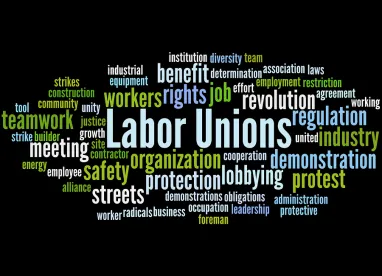The National Labor Relations Board (NLRB or the “Board”) has been steadily increasing employers’ rights to restrict union access to their facilities. Now the Board appears poised to codify the new rules of engagement in forthcoming proposed rules. Throughout the past summer, the NLRB issued several rulings granting employers greater access control. For example, in June, the Board upended decades of precedent by holding that employers can prohibit union solicitation in public areas (such as, in the case at issue, a hospital cafeteria), provided the employer has a policy or practice prohibiting distribution or solicitation on its property, and does not only enforce the rule against union activities. This holding is a sharp reversal of the longstanding precedent that allowed union organizers access to any areas open to the general public, as long as they did not disrupt the employer’s operations.
In August, the NLRB continued down this path of increased employer access control, ruling that employers can refuse to allow off-duty contractors or licensees on private property, as long as the off-duty individuals do not regularly and exclusively work on the property and have other reasonable means to communicate with employees. Further strengthening an employer’s rights to limit property access by nonemployees, the NLRB determined that contractors—here, symphony orchestra musicians who performed at the location but were not employed by the center—are not entitled to the same rights enjoyed by employees. Given the current gig economy, in which many workers are classified as contractors, this ruling itself has wide-ranging implications that limit unions’ right of organization access.
The following month, in another reversal of precedent, the NLRB determined that employers could lawfully distinguish between types of nonemployee activities by barring some and allowing others. For example, an employer can prohibit nonemployees who protest, picket, boycott or, in this case, seek signatures from customers in support of a union protest, while allowing nonemployees on its property for charitable or civic purposes.
Members of the NLRB have indicated that the Board plans to issue a Notice of Proposed Rulemaking—an early step federal agencies must take in issuing or amending governing rules—that will codify these decisions and clarify when and how employers can restrict union access to their property. This proposed rule is expected to remain in line with last summer’s case law and significantly expand employers’ rights to control who can enter their property and why. Employers, especially those with significant public spaces, or a substantial nonemployee population, should keep a sharp eye on these developments.




 />i
/>i

